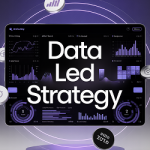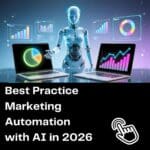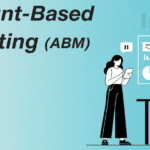In the last few years, artificial intelligence has moved from hype to habit. What was once the domain of large enterprises — machine learning, natural language processing, predictive analytics — is now available to any business with a laptop and a credit card.
But we’re about to hit another inflection point: the rise of autonomous AI agents.
By 2026, I believe every B2B small or medium-sized business (SMB) will be using AI agents in their daily operations — not as an optional experiment, but as a competitive necessity.
Let’s explore why…
From Tools to Agents: The Next Phase of AI Adoption
First, it’s important to define what we mean by AI agents. We’re not talking about generic AI tools, like a chatbot on a website or a smart search feature inside software. We’re talking about autonomous, goal-driven systems that can perform complex tasks across multiple steps — often without human intervention. For example:- An AI agent that identifies and qualifies sales leads, writes outreach messages, and follows up until a meeting is booked.
- An AI content agent that plans, drafts, and schedules social posts based on audience data and performance trends.
- A customer success agent that monitors CRM activity and proactively engages accounts at risk of churn.
Economic Pressures on SMBs
The adoption of AI agents isn’t happening in a vacuum; it’s directly tied to economic realities. SMBs are under mounting pressure:- Rising wages and talent shortages in sales, marketing, and customer service.
- Increasing competition from both larger players and nimble digital startups.
- Higher customer expectations for speed, personalization, and responsiveness.
Democratization of AI Infrastructure
Until recently, only large enterprises had the resources to build custom AI systems. But with the rise of foundation models (like GPT-4, Claude, Gemini, and open-source alternatives), the infrastructure is now available to everyone. Additionally, low code platforms like Relevance ai and n8n mean that agents can be built quickly and at low cost. Just as cloud computing democratized access to high-performance computing, pre-trained AI models and agent frameworks are democratizing access to cognitive labor.- No need for in-house data science teams: Prebuilt agents can handle common use cases out of the box.
- Low implementation complexity: SMB-friendly platforms wrap complex models in simple interfaces.
- Affordable pricing models: SaaS-based AI agents are accessible even to bootstrapped teams.
Changing Nature of Work
There’s also a deeper shift underway: the unbundling of work itself. Historically, tasks were grouped into jobs and assigned to people. A sales rep did prospecting, outreach, pipeline management, and reporting. A marketer planned campaigns, created assets, and measured performance. But AI agents break apart these bundles:- One agent specializes in research.
- Another specializes in outreach.
- A third specializes in reporting.
Shifting Buyer Expectations
SMBs don’t operate in isolation; they exist in ecosystems. And those ecosystems are changing.- Buyers increasingly expect instant responses, personalized interactions, and seamless follow-ups.
- Competitors (especially well-funded or digitally native ones) are using automation to increase their GTM velocity.
- Customers have little patience for operational inefficiency.
The Maturity of the Agent Ecosystem
Finally, the agent ecosystem itself is maturing. We’re already seeing:- Agent-specialized platforms (like RevGenie.ai, among others) offering plug-and-play solutions for specific workflows.
- Integrated ecosystems where agents talk to CRMs, email platforms, ad tools, and more.
- Developer communities rapidly improving agent orchestration, error handling, and task decomposition.
- AI agents with full multimodal capabilities (text, image, video, voice).
- Cross-agent collaboration, where multiple agents coordinate to achieve complex goals.
- Industry-specific agent suites tailored for vertical use cases.
The Bottom Line
The combination of economic necessity, technological maturity, shifting work paradigms, and rising customer expectations points to one clear outcome: By 2026, every B2B SMB will be using AI agents — or risk falling behind. These agents won’t be flashy experiments. They’ll be deeply embedded in the fabric of business operations, handling:- Lead generation
- Customer engagement
- Content creation
- Pipeline management
- Data analysis







